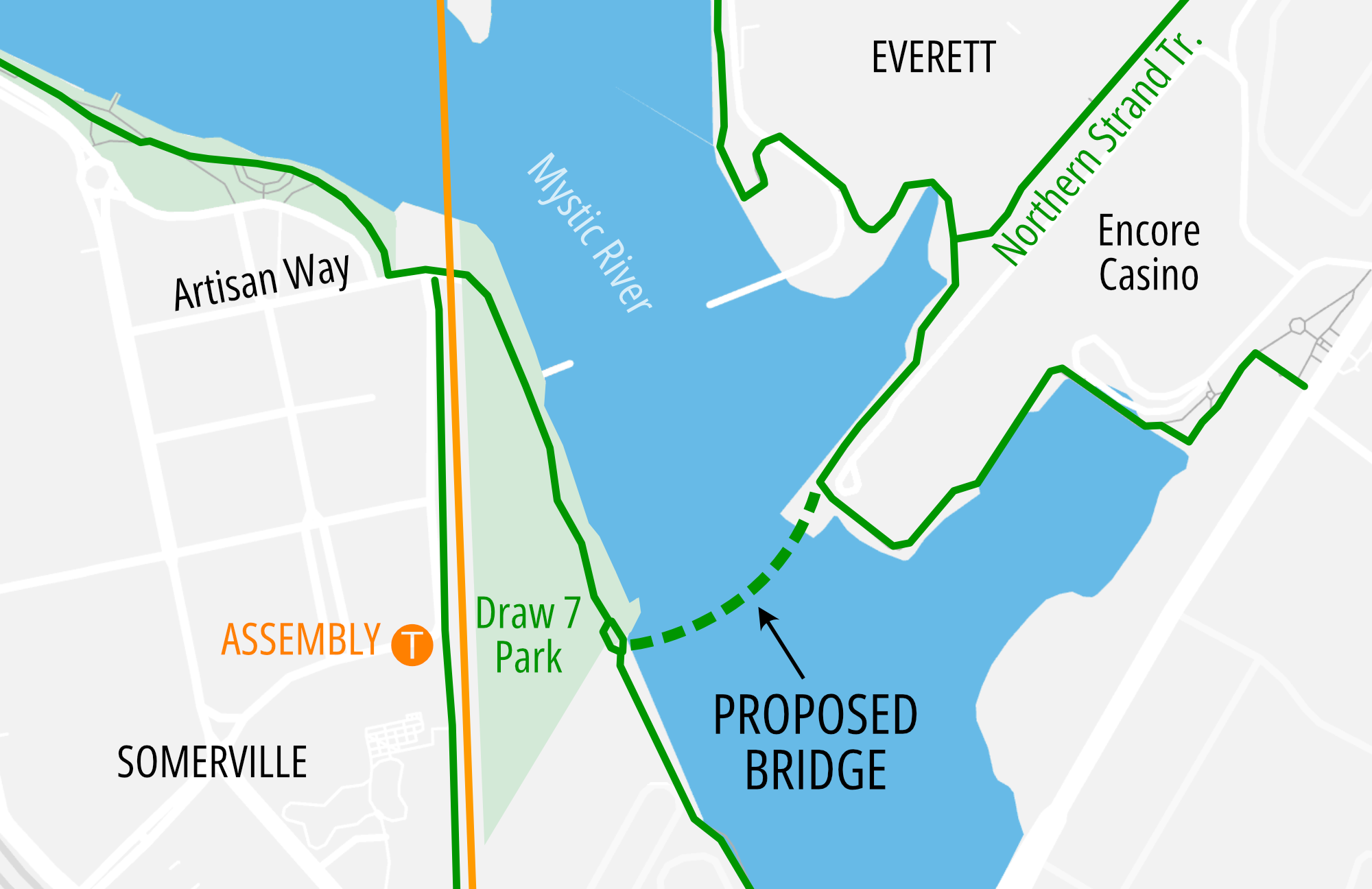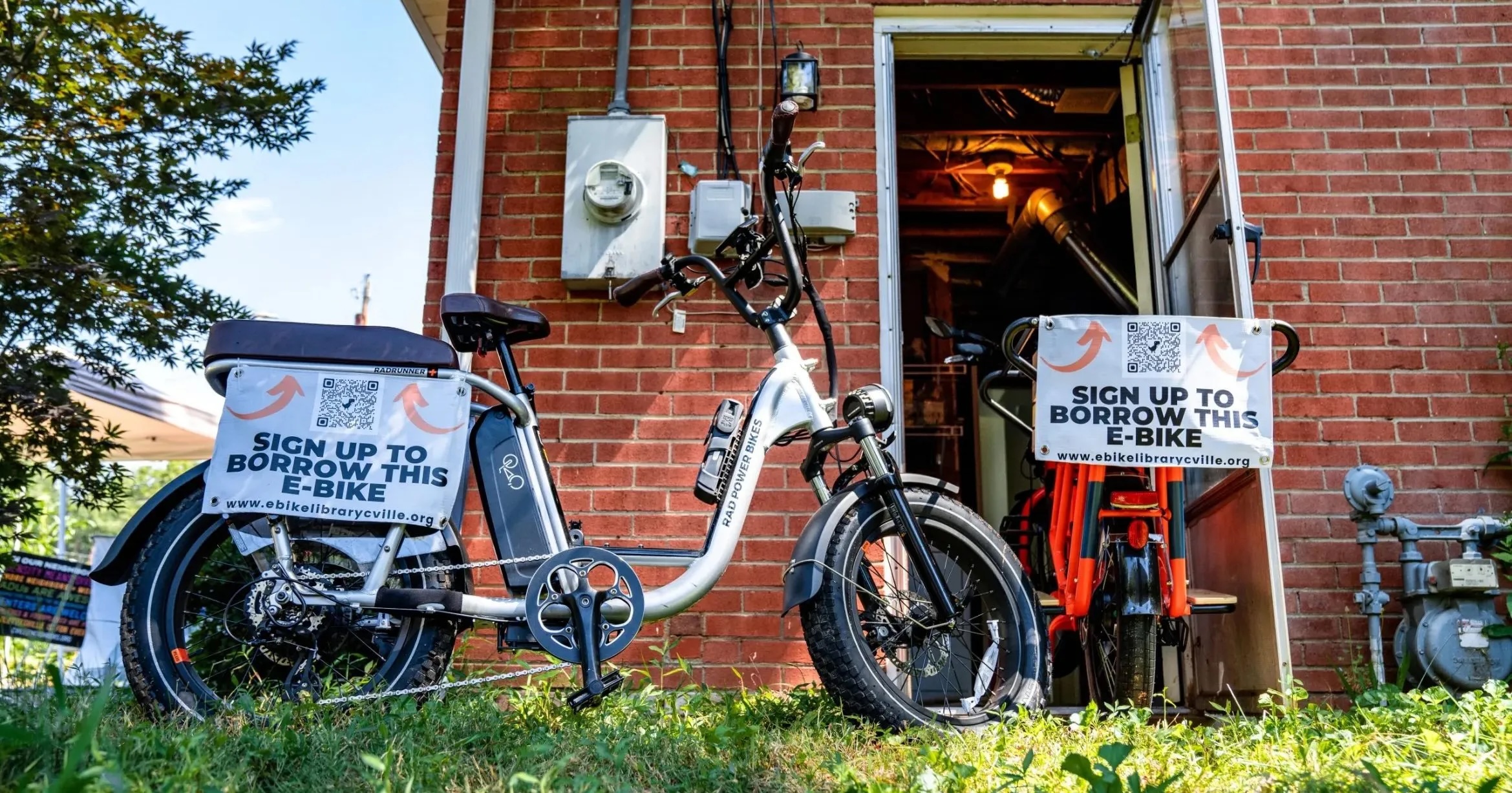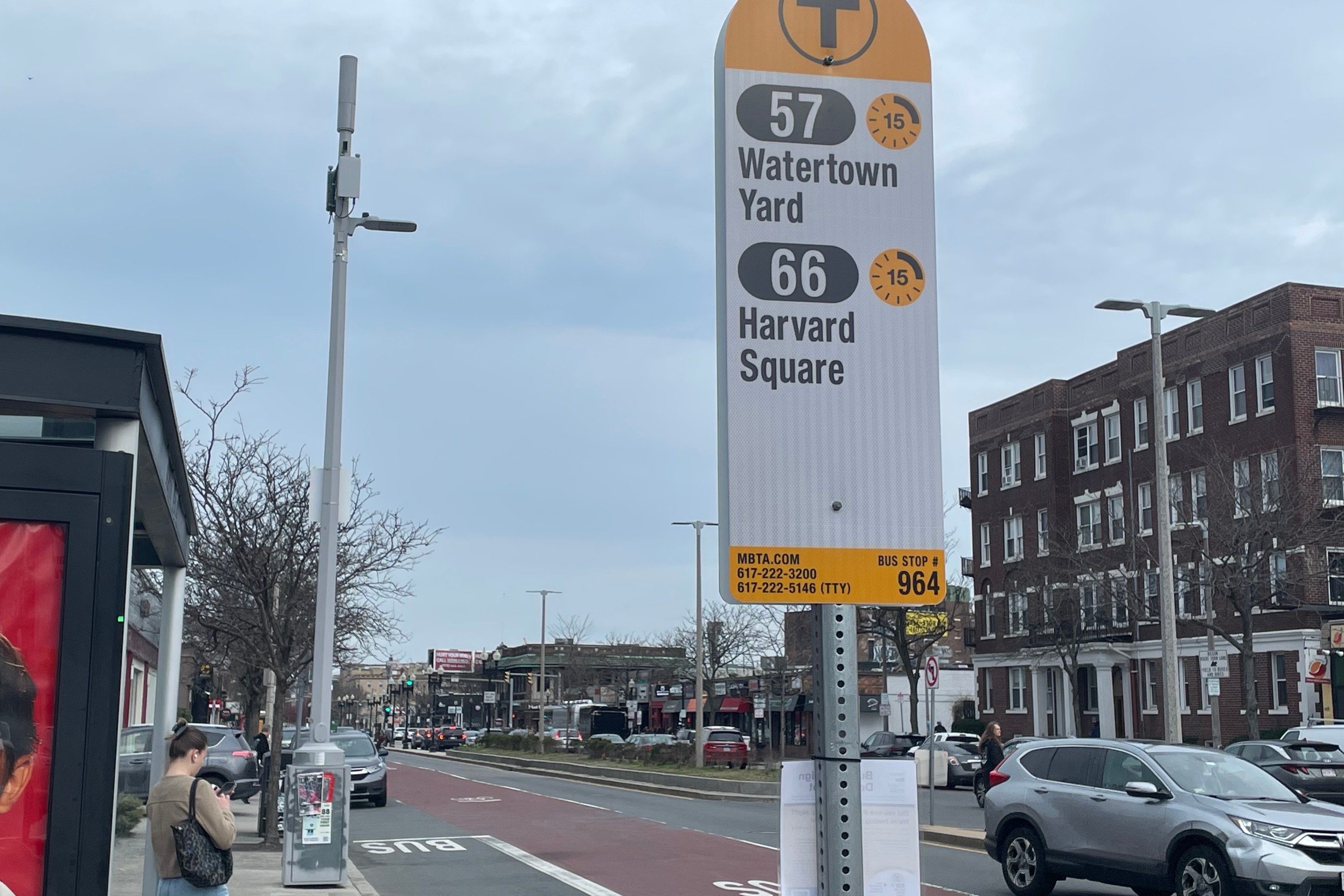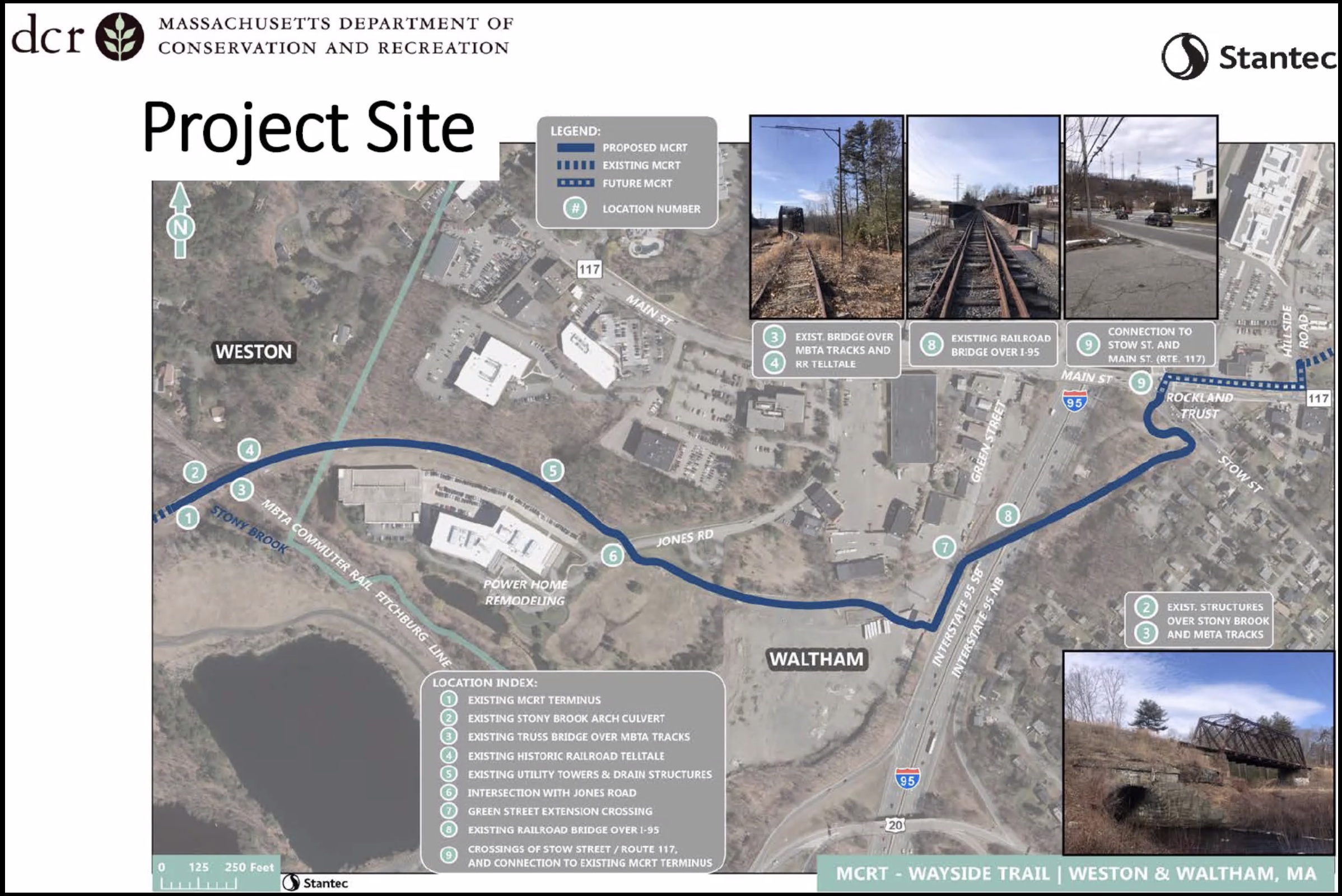MBTA Board Updates: Bikes on Commuter Rail, Fare Changes, Budget Updates
4:17 PM EST on January 27, 2022
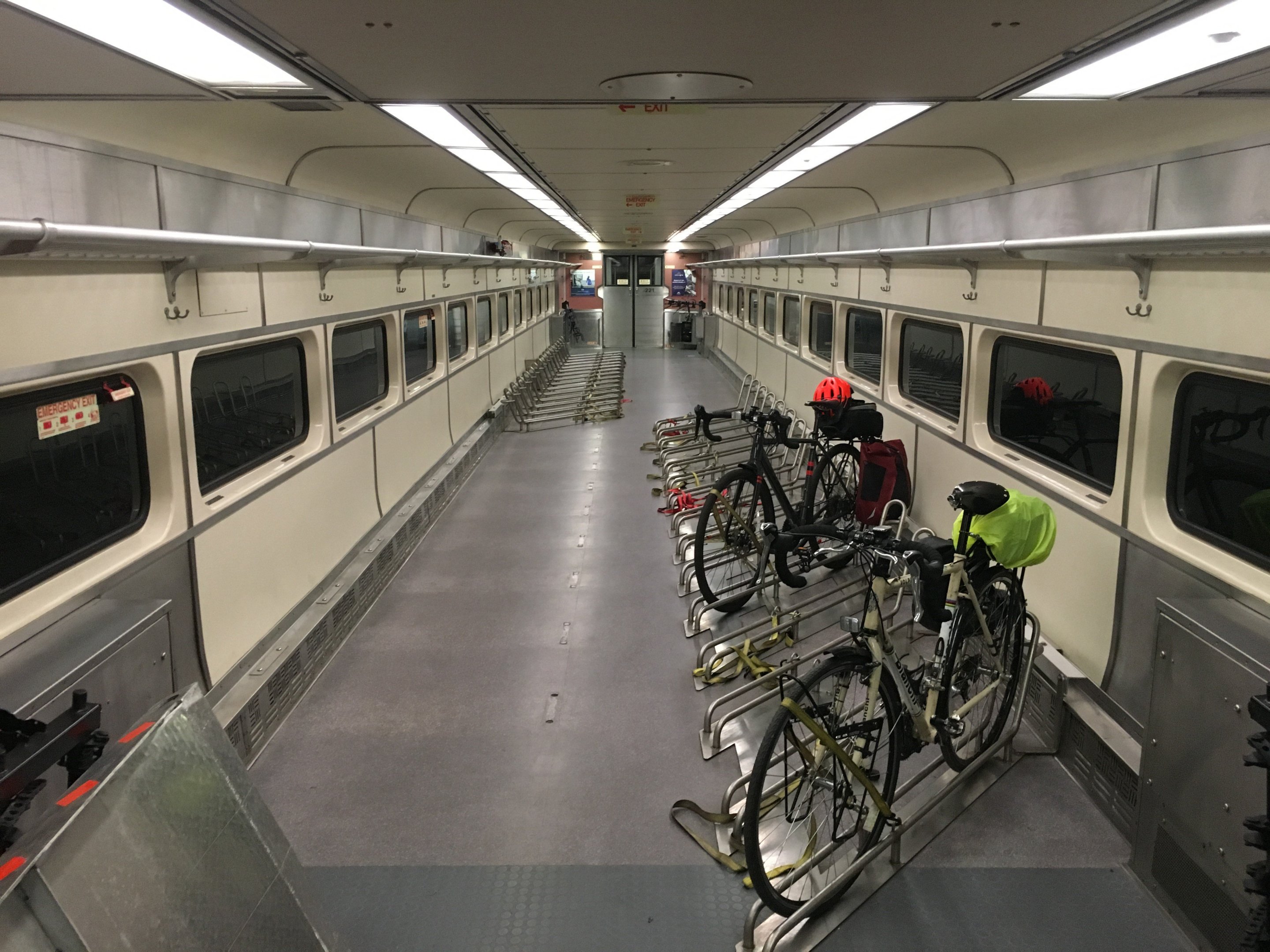
A bicycle storage car on the Cape Flyer train. Courtesy of the MBTA.
On Thursday, the MBTA's board of directors met for the first time this year. Here's a roundup of what they discussed:
Bikes Can Come Back to Some Regional Rail Lines
General Manager Steve Poftak alerted the board that the T would partially reverse an October decision to prohibit bikes on rush-hour regional rail trains.
During the pandemic, while the T’s regional rail trains were running with only 10 to 20 percent of their pre-pandemic passenger volumes, the agency had temporarily suspended a policy that prohibited bikes on rush-hour trains in an effort to entice riders back to the service.
On Oct. 11, though, with little advance notice that left some riders in the lurch, that policy ended. As it was before the pandemic, bikes today are not allowed on trains traveling toward Boston between 6:30 and 10 am, or on trains that depart Boston between 3:30 and 7 pm.
During the October MBTA board meeting, Poftak explained that “as ridership has increased the issue is, you have our riders with bikes, but we have riders with disabilities and wheeled mobility devices, and there is limited space, particularly on platforms where the accessible path of boarding is at the first car in the train.”
Today, Poftak announced another change in policy: starting on Feburary 7th, bikes will be allowed on all trains on the three "Old Colony" regional rail lines to the south coast: the Greenbush line, the Kingston/Plymouth line, and the Middleborough/Lakeville line.
"The Old Colony lines have all high-level boarding platforms," said Poftak. "So people are able to board at any door they wish with a bike, which allows us a little more room."
In the long run, the T's "rail vision" plan calls for the agency to build full high-level platforms at all of its stations to facilitate better access and faster boarding for everyone.
Pandemic relief funds to provide down payments for major projects
Poftak also reviewed recent ridership numbers, which have taken a significant hit in the past month from the winter holidays and the Omicron variant of the Covid-19 pandemic:
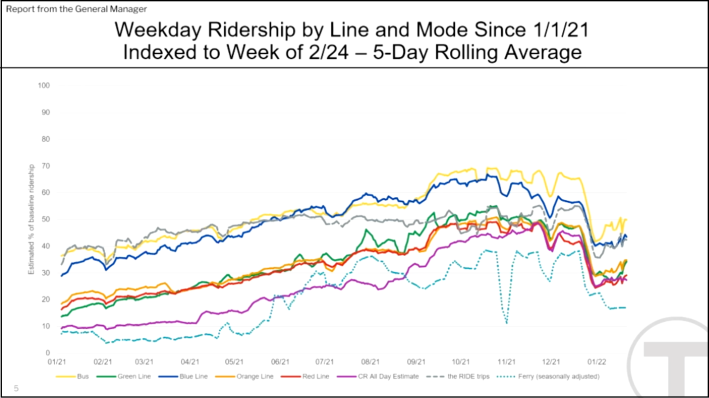
However, Poftak noted that ridership has begun to climb again in recent days, as university students return to classes and the number of Covid-19 cases has begun to decline again.
Poftak also outlined a proposal to transfer $500 million out of the T's operating budget surplus (largely a product of federal pandemic relief and better-than-expected fare revenues) to pay down payments on various capital construction projects that are in the planning stages.
"This funding is really available because of those one-time revenues from the federal government. So we're trying to come up with a list of one-time investment opportunities," said Poftak.
Proposed projects that could benefit from that funding include final design work for three new regional rail stations in Newton, new bus garages, demolition of the underutilized Lynn parking garage in preparation for future transit-oriented development, and an accelerated implementation of a new crash prevention system on the Green Line.
The proposed spending package also sets aside $5 million for Boston's proposed center-running busway on Blue Hill Avenue, to match a competitive federal grant that was awarded for the project at the end of 2021.
There was no formal board vote on the proposed spending package (although contracts for the individual projects will require board approval), but several board members expressed their support for the slate of projects.
Proposed fare changes don't include low-income fare pilot
During the public comment period at the beginning of the board meeting, numerous advocates asked the board to follow through on a June 2021 resolution from their predecessors, the Fiscal and Management Control Board, that called on the T to design a 9-month pilot program that could offer discounted fares for low-income riders before the end of 2022.
Paulina Casasola, Climate Justice Organizer for Clean Water Action and a member of the Public Transit Public Good coalition, told the board "I can not afford to pay the monthly T pass in one payment. It's too much money and I still need to get around the city... so please make sure that you are supporting the low-income fare."
Later in the meeting, Lynsey Heffernan, the T's Assistant General Manager for Policy and Transit Planning, discussed a slate of relatively modest fare policy changes that did not include a low-income fare program.
The changes include expanding monthly passes to the commuter rail and ferry systems and creating new 7-day passes for the T's existing Reduced Fare programs, which benefit people 65 and older, people with disabilities and Medicare cardholders, some middle and high school students, and low-income youth aged 18 to 25.
The T is also expand a new flexible pass for the regional rail system that was tested as a way to lure workers back to the T even if they haven't returned to their offices on a full-time basis. The 5-day flexpass would allow unlimited trips for any 5 days within a 30-day window on the commuter rail system.
Finally, the T is proposing a policy change to allow a second free transfer for bus trips that chain together three different bus routes.
An MBTA Title VI analysis concluded that some of these changes – like the allowance of second transfers on bus trips – would disproportionately benefit non-white transit riders. But others – like the expansion of reduced fare products to ferries and the suburban rail system – would be more likely to benefit white riders.
The T is required to take public comment on the fare changes through February, and the proposed slate of fare changes would need to come back to the board for a final vote before taking effect in the new fiscal year in July.
Read More:
Stay in touch
Sign up for our free newsletter

